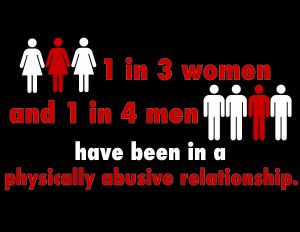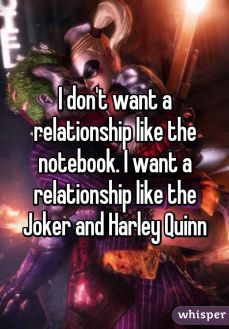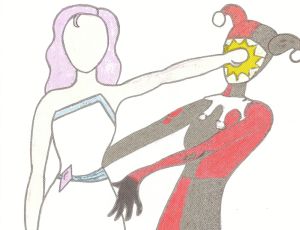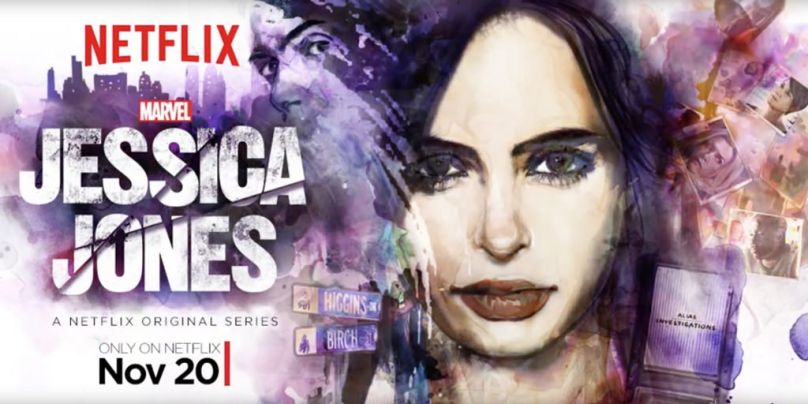
One in three women and one in four men have been physically abused by their significant other, according to a report by the National Coalition Against Domestic Violence.
Domestic abuse is a serious and prevalent issue. We know the warning signs. We know to seek help if we are in one and to reach out to others who could be trapped in one. We object to domestic abuse in life.
But, we idolize abusive relationships in pop culture.
Young teenagers “shipping” Tate and Violet from the first season of American Horror Story exemplifies how people idolize abusive relationships. When the show begins, Tate appears an edgy and depressed kid, before being exposed as a psychopath. But somehow, viewers are able to look past his rapes, murders, manipulations and abuses because of his “love” for Violet, his boyish charm and his handsome face.
Edward Cullen controlled, stalked, threatened, objectified and isolated Bella in the “Twilight” series. The series glorifying this toxic relationship was so popular, it made more than 500 million in films alone.
Christian Grey in “Fifty Shades of Grey.” Erik in “The Phantom of the Opera.” Chuck in “Gossip Girl.” Even Helga in the cartoon classic “Hey Arnold” stalked Arnold and kept a shrine of him. All of these abusers have been romantically glorified, or at least normalized, in pop culture.
What abusive relationship is idolized more than the “damaged” and “rotten” duo themselves, Harley Quinn and the Joker.
Harley Quinn is one of the most beloved comic characters. She should be. In addition to being a genius and a fighter, people love Harley because they can relate to her. Most people have had feelings for someone that were not reciprocated.

Somewhere along the way though, the message got skewed and people began to not just sympathize and pity Harley, but idolize her. One of the most commonly cosplayed characters is rallied behind, as if some kind of symbol for women’s strength and playful independence that is so far from the truth.
Harley and her relationship with the Joker is a textbook example of an abusive relationship. She gave up her life and personality to please him and in return, he physically abuses her and mentally torments her.
One claim I have heard countless times is, “No, the relationship is not abusive, he really does love her, it is just a love-hate relationship.” Which, for one thing, is a red-flag phrase of an abusive relationship, but also, the Joker is not capable of love.
His insanity makes him only capable of obsession. And similar to how he obsesses over Batman, he obsessed over Harley. He got what he wanted from her and then tossed her aside. But she is still hopelessly in love with him. Not hopeless like a hopeless romantic. Hopeless in the sense that the Joker can never and will never love her.
Now, the recent “Suicide Squad” film deviated from this structure a bit, having the Joker actually appearing to care for Harley and to fight for her. But, he still abuses her, which is why I think people are getting confused about the extent of the abuse and the dynamic of the relationship, as well as why idolization of them as “relationship goals” has become so prevalent.
The idolization of Harley and the Joker needs to stop. We need to stop teaching people that this kind of relationship is okay. Harley is not a strong female character you should want to be.

When people tell me they love Harley and that they are basically Harley, after I ask them “Oh, so you killed a bunch of children with explosive video games?” I then tell them to watch Marvel‘s Netflix original, “Jessica Jones.”
Not because I think they would like it, but because they need to see what an abusive relationship is.
On the one hand, the abusive relationship of Harley and the Joker is romanticized. The victim accepts her captivity and falls for her abuser. With Jessica Jones, she more than acknowledges the abuse; she fights it. “Jessica Jones” is the social commentary on abusive relationships that we need.
Jessica Jones survives abuse, control, rape, loss and PTSD, only to come back and defeat her rapist. Jessica Jones is a survivor shaped by her experiences, but not destroyed and significantly altered by them.
Stop glorifying abusive men and domestic violence. Stop teaching children that violence equates to love. Stop being Harley and start being Jessica.

Photo from the Creative Commons.




You’re obviously not a comic book person and just a marvel fan. She shows what a lot of women do; stay with their abuser but then she starts to realize her toxic relationship. Harley then leaves the Joker. People idolize her for her strength and wit, not because she is in an abusive relationship. She also moves on to date Poison Ivy so and learns what love actually is.